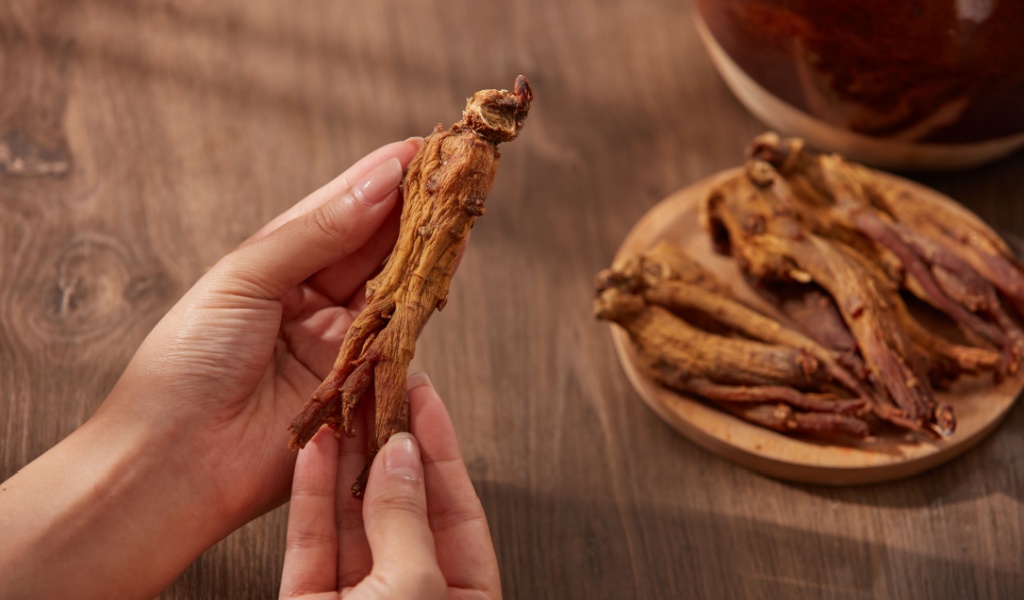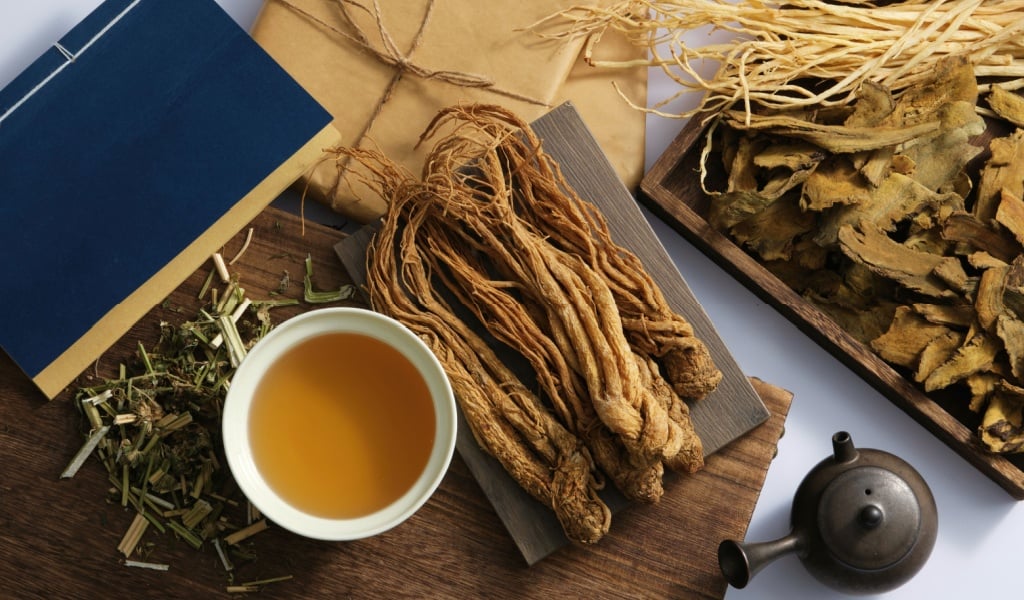Dong Quai may be a relatively unfamiliar term, but this purported “magical” herb has earned some exceptional names throughout its 200-year history in Chinese medicine. Dubbed the Female Ginseng, Empress of Herbs, and Sovereign Herb For Women, Dong Quai is a member of the Apiaceae plant family that includes parsley and carrots.
In the East, Dong Quai is used widely and holds exalted status. More research is being conducted into its medicinal properties. Still, it’s worth knowing that this ancient herb can enable us to lead healthier lives.

What is Dong Quai?
A herb native to China but also found in Japan and Korea, Dong Quai grows in damp soil at elevations of up to 10,000 feet. Its purple stem, standing up to six feet tall, holds disc-shaped umbels of small white flowers. Upon maturing, the root is harvested and dried as an herbal supplement.
In traditional Chinese medicine, Dong Quai is classified as a critical tonic herb for blood deficiency. Its ability to nourish the blood and promote good blood circulation has made it a popular herb used in combination with various other herbs to treat menstrual-related problems. Chinese herbalists also prescribe this herb to relieve signs of constipation, anemia, and arthritis.
Dong Quai is also used in other traditional healing, such as Unani-Tibb and Ayurveda. It’s also used in Western herbal remedies, and its popularity continues to rise, thanks to its ease of availability and plethora of health benefits.
How the Dong Quai Root Is Used
In traditional Chinese medicine, as in Western herbology, Dong Quai is taken as a decoction of tea or tincture, where an extract is mixed with alcohol. It can also be taken orally in the form of a capsule or applied as cream or oil. It is also consumed raw or administered as an injection in countries like China and Japan.
Benefits of Dong Quai
While limited scientific research exists regarding the effectiveness of this herb in the medical context, centuries of its usage and benefits have served as a sufficient guarantee of its benefits. Research has proved that Dong Quai root contains active compounds such as organic acids, phthalides, and polysaccharides.
Supports Reproductive Health In Women
Dong Quai has a long-standing reputation for being a powerful herb for relieving menstrual and menopausal symptoms, regulating hormones, reducing symptoms of hormonal imbalances, and reducing Post Menstrual Symptoms like cramping, bloating, and depression in addition to menopausal symptoms like insomnia, muscle aches, irritability, and night sweats.
The compounds in this herb promote blood circulation and offer a relaxing and stimulating effect on the uterus. This further supports normal menstrual flow and eases menstrual pain.
Supports Male Sexual Health
While it’s famous for supporting female sexual health, when combined with other herbs, Dong Quai is also used as a topical cream for ejaculation support.
Improves Heart Health
Dong Quai forms a powerful blend that supports cardiovascular function when used with other herbs. The blend can benefit even more significantly when combined with astragalus, ginseng, and polygonum multiflorum extract.
Supports Digestive Health
As a supplement, Dong Quai can support the balance of stomach acids and protect the gastrointestinal tract. If the stomach acid is imbalanced, it could erode the digestive tract and cause chronic inflammation, leading to the development of peptic ulcers.
Enhances Bone Health
Dong Quai supports healing from bone injury by improving blood quality and circulation. It’s also used in herbal formulations to promote and strengthen bone density.
Respiratory Benefits
Most respiratory conditions involve breathing issues and inflammation. Good blood circulation eases these symptoms. Thanks to the properties in Dong Quai, it’s believed to aid in respiratory health.
Enhances Brain Function
Dong Quai is believed to possess beneficial properties for protecting nerve cells against daily damage. Therefore, it can enhance cognitive function and neurological health.
Used To Support Amenorrhea
Amenorrhea is a condition where one misses menstrual periods for consecutive months. Dong Quai is known for its potential to regulate menstrual cycles and has been used to help women facing this condition.

Side Effects of Dong Quai
Everything should be consumed in moderation, and the same applies to traditional Chinese medicine. One should ensure that Dong Quai is used cautiously and not overconsumed.
Common side effects include bloating, diarrhea, skin irritation, nausea, and sensitivity to light.
Who Should Avoid Dong Quai?
Since this herb is known to affect blood flow and act like estrogen, people who have the following conditions should not use it without discussing it with a doctor:
- Blood clotting disorder
- Hormone-sensitive cancer (uterus, prostate, ovary, breast)
- Endometriosis or uterine fibroids
- Surgery to be done within two weeks
Furthermore, Dong Quai supplements can interact with other medications and hinder their effectiveness. Therefore, those who are taking medications for chronic illnesses or use blood thinners (anticoagulants and antiplatelets) and nonsteroidal anti-inflammatory drugs like ibuprofen and aspirin should avoid Dong Quai.
Pregnant women and breastfeeding mothers should also stay away from Dong Quai mainly because its safety is yet to be established.
Final Thoughts
The health benefits of Dong Quai are undeniable, so it’s worth trying. Traditional Chinese herbs don’t produce immediate results, so it’s important to understand that it takes time and patience for Dong Quai to yield its effects. Make sure that you follow the recommended regimen and wait for the herb to work over time. The exact duration will vary from person to person, but people generally experience its benefits after a few weeks of consistent usage.



